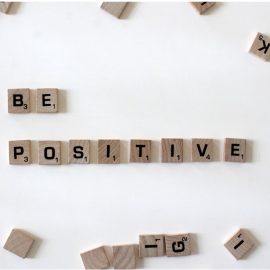

This article is an excerpt from the Shortform book guide to "Attached" by Amir Levine and Rachel Heller. Shortform has the world's best summaries and analyses of books you should be reading.
Like this article? Sign up for a free trial here .
Why is ending a toxic relationship so difficult? What are the best tips for breaking up with someone toxic?
Even when a relationship has become toxic or abusive, it can be very difficult to end it. There are many reasons for this, including shame, the rebound effect, and our innate desire for togetherness. However, ending a toxic relationship is necessary for your health.
Continue below for nine tips on how to end a toxic relationship.
Why Breaking Up Is Hard to Do
If you’re in a relationship that has become abusive or damaging, the first step is to admit it. Many people feel ashamed of their predicament and try to brush it off by saying “no relationship is perfect” or “all couples have disagreements.”
But even if you recognize that you should end a toxic relationship, you still may find it nearly impossible to leave. And if you do leave, you’ll immediately want to run straight back to his or her arms. That’s due to the “rebound effect.”
Evolution has wired our attachment system to prefer togetherness over going solo. Our brains’ emotional circuits send out a message of “ouch, Mayday, severe pain ahead!” when we consider the prospect of breaking up with our significant other. In fact, our brains register a relationship breakup the same way they register a hot stove we’re about to touch. The brain sends a “don’t-do-it” signal.
From the standpoint of evolution, that’s a good strategy. Our brains want to encourage us to stay connected to another human being (after all, they just might save us from the saber-toothed tiger). But there are no predators threatening us, just an unhealthy relationship that needs to end.
Unfortunately, once your brain registers the pain of the breakup, there’s a snowball effect: Your attachment system goes into overdrive, and your cognitive powers get hijacked. Suddenly you can remember only the good times you’ve shared with your ex; the bad times fade out of view. Now breaking up seems like a terrible idea, so you stay. Or if you’ve already broken up, you return for a “rebound.”
9 Tips for Toxic Breakups
If you need to end a toxic relationship but don’t think you have the will to do it, rely on these strategies. These nine tips can help you get through a tough breakup:
- Take a hard look at how your partner treats you. Does he or she treat you like you’re the most important person in their world or like you’re the enemy? (If you’re not sure, refer to the list of questions above, “How to Know If Your Partnership Has Become Toxic.”)
- Build a support team in advance of the breakup. Tell your friends and family the truth about your relationship, and let them know you’re thinking of ending it.
- Have a cozy, safe place to go for the first few nights. If you can, stay with family or close friends. If you get the urge to go back to your ex, they’ll be there to talk you out of it.
- Find comfort wherever you can. You need to calm your overexcited attachment system, so indulge in whatever feel-good activities appeal to you (perhaps eating ice cream, getting a massage, or talking to a therapist).
- Don’t feel ashamed if you “rebound.” Since the dawn of time, heartbroken lovers have performed embarrassing stunts in the wake of a breakup. It would certainly be better if you didn’t phone your ex in the middle of the night (or drop by his or her apartment), but if you do, don’t beat yourself up. That will only further activate your attachment system rather than calm it.
- Don’t feel guilty for feeling deep pain. You may start thinking you should stop “moping” and get on with your life, but be compassionate and patient with your pain. It’s real.
- When you’re overwhelmed by wonderful memories of your ex, ask a friend to weigh in on what the relationship was really like. Your perspective is distorted, so get an outside opinion.
- Make a list of all the reasons you left. Write down what exactly occurred during some of the ugliest scenarios. This will help you to combat all those rosy memories that keep flooding your brain.
- Remember that this too shall pass. It may not seem possible, but someday your broken heart will heal, and you will fall in love with a much more suitable partner.

———End of Preview———
Like what you just read? Read the rest of the world's best book summary and analysis of Amir Levine and Rachel Heller's "Attached" at Shortform .
Here's what you'll find in our full Attached summary :
- Why your partner behaves the way they do
- How your attachment style affects your relationship
- How to distance yourself from unhealthy relationships






